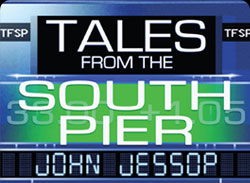I’ve just noticed the date,
November the Fifth. It means that tonight,
the skies around our house will be bright with fireworks from a thousand garden
celebrations.
For the benefit of my half-dozen
foreign readers, I should explain that tonight is Guy Fawkes Night, commonly
known in Britain, or at
least in England,
as Bonfire Night. It celebrates the
‘deliverance’ of James I from a Catholic plot, organised by Fawkes, to blow up
the Houses of Parliament and replace the Protestant James with a Catholic
monarch. (I forget who). Fawkes and his
accomplices managed to smuggle several barrels of gunpowder into the basement
of the House of Lords, but before setting off the fuses, they were disturbed by
a patrol of the Yeomen of the Guard. (And
you thought those beefeaters were just for decorations.)
To head off charges that such
celebrations might be seen as perpetuating anti-Catholic prejudice, I hasten to
add that they are invested with absolutely no religious significance – not a
scintilla. The foiled plot’s anniversary
date is simply an excuse for a party.
I’d go further, and venture a guess that if the plot had succeeded, we
would have been celebrating the event even more seriously and just as
irreligiously. Actually, more than a few
people in Britain today
probably harbour dark thoughts that someone like Fawkes, intent on blowing up
the Palace of Westminster, might if he succeeded be
regarded as a national hero. But that’s
just by the by.
In my childhood, Bonfire Nights were usually rather modest,
ad hoc affairs: a small bonfire in the garden and about five minutes’ worth of
illuminations. The post-war years were a
period of economic hardship in Britain
and fireworks were beyond most family budgets.
As kids, we used to stuff a few of Dad’s discarded clothes with straw or
rags to make a ‘guy’ and take this doll-like figure out on the street. There we’d prop it up against a wall – some
kids used prams (baby-carriages) – hang a sign round its neck that appealed for
a ‘penny for the guy’, and panhandle passers-by for donations to buy
fireworks. The enterprise usually did
well enough to buy enough fire-power for a spectacular if brief display. Neighbours would pool resources to enliven
the occasion.
When I lived in London’s
East End, there were no gardens, so the
bonfires parties were held in the streets – much to the consternation of the
police and fire services. I lived in a
large cobbled square, in which two opposite corners had rival parties. We competed to make the biggest bonfire,
which was largely constructed from old furniture, and could reach a height of
twenty feet.
The Wellclose Square pyres became infamous
locally, and fire engines were usually sent round early in the day to dismantle
them in the interests of public safety.
But the firemen had no means of disposing of the kindling, and merely
left it lying on a nearby bomb site.
Five minutes after they’d left, we’d emerge from our homes and gather it
all up again.
The firemen were right: it was
dangerous. The heat was so intense from
those fires that you couldn’t stand closer than thirty feet away. That was alright, because once the fire was
lit we were busy having ‘banger’ fights with the rival gang from across the
square. A banger was a small firework,
no thicker than a pencil, which did nothing but emit a brief fizz before going
off with a loud shot-like report. The
trick was to skid them across the ground in the direction of your opponents
just before the fizzing ended. At the end of the contest, our hearing would be
reduced, sometimes for days, to a loud and insistent ring.
You may be wondering what our
parents were doing while this mayhem was going on. They stayed indoors, either listening to the
wireless, or nursing terrified dogs, or more likely praying that we’d come home
with most of our fingers.
Anyway, that’s what we have to
look forward to tonight: Esher lit up as the East End
once was during the Blitz.
A poem still floats into my head:
Remember, remember the fifth of November,
Gunpowder, treason and plot.
I know of no reason why the gunpowder treason
Should ever be forgot.
And nor is it.


Be First to Comment